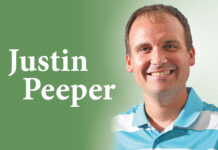How did we ever get to this point? And so quickly? I routinely try to ignore national news channels but admit to scanning a daily feed of headlines. What I am seeing beggars credulity. One of the top news stories is gender affirmation/gender reassignment/gender whatever issues among young children. Young children? The battle lines are…


